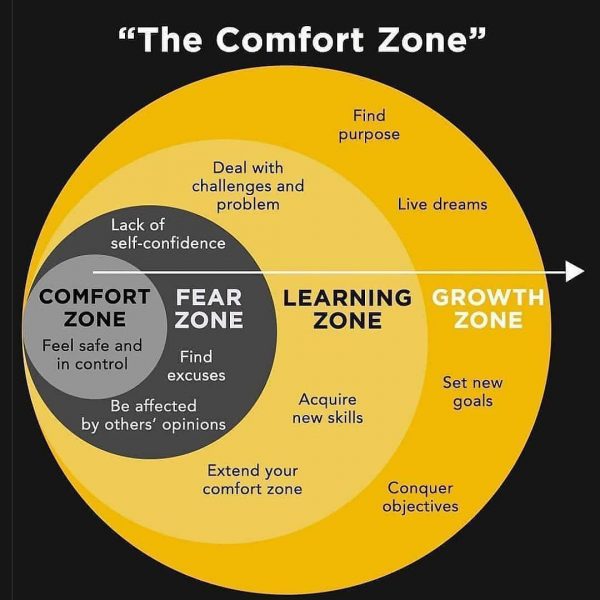While the term is often used in the public discourse, comfort zone is still a problematic/difficult concept. We are often told to leave the comfort zone without being given an explanation of what the zone is. So, what’s comfort zone?
This diagram visualizes the concept clearly, providing indicators we can use for measuring the zone(s).
1. If you always feel safe and in control, you are in the comfort zone.
2. If you lack of self confidence, always find excuses, and are easily affected by others’ opinions, you are in the fear zone. You’re moving away from the comfort zone.
3. If you deal with challenges and problems, and learn new skills, you are in the learning zone. In this stage, you are extending your comfort zone.
4. I love the indicators! If you always try to find and set your purposes, if you live your dreams, you set goals and achieve objectives, congratulations! You are in the growth zone.

